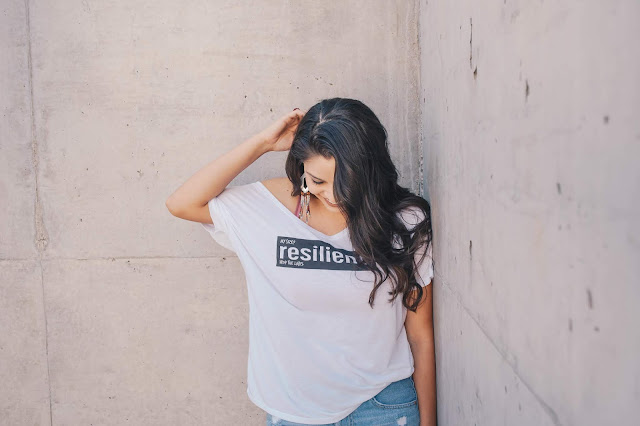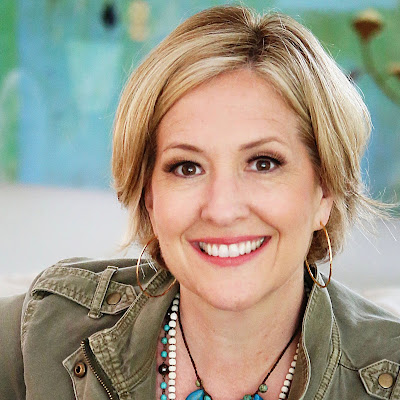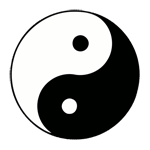 |
Everybody has resilience. It is just a question of how much and how well we put it to good use into our life.
Photo by Drop the Label Movement on Unsplash |
Introduction to Resilience
People face with adversity in life. Some of us are robust to adversity, difficulty, and stress and persist despite these unfavorable experiences quickly, efficiently. On the other hand some face hurdle which is associated with stress, absenteeism, poor performance, and ultimately ended with mental illness.
In our life, it is mostly common to see the death of loved one, loss of a job, serious illness, terrorist attacks or some other traumatic events. Many of us react to such circumstances with a good amount of strong emotions and a sense of uncertainty.
Yet people generally adapt well over time to life changing events and stressful conditions. What enables them to do so? Psychologists have long studied these issues and come up with a label resilience, an ongoing process that requires time and effort and engages people in taking a number of steps. Resilience is pretty much the holy grail of positive human functioning.
The idea of resilience has entered the mainstream of life. Well known researchers like Brene Brown
 |
| Brene Brown |
and Angela Duckworth have published their ideas on the topic. But the fact remains, a lot of people don't understand what resilience is.
There is a misinterpretation or confusion that resilience is being fearlessness, being tough or just being able to pick oneself up by the bootstraps.
| Angela Duckworth |
These misinterpretations are specially prevalent in business circles. That is a big problem because this way of thinking can actually make business leaders less resilient.
Everybody has resilience. It is just a question of how much and how well we put it to good use into our life.
It just not about the feeling of the intensity of the event or problem , instead handling those in a pretty good way of dealing with it more quickly and efficiently.
Everyone can learn to increase their resilience abilities. Like any human skill, learning greater resilience is something that we can at any age, from any background, no matter of educational background or family relationship. All we need the willingness to do so and seek out ways of learning more about resilience.
What is Resilience ?
American Psychological Association put it this way -
Resilience is the process of adapting well in the face of adversity, trauma, tragedy, threats or significant sources of stress - such as family relationship problems, serious health problems, or workplace and financial stressors. It means bouncing back from difficult experiences.
Research has shown that resilience is ordinary, not extraordinary. People commonly demonstrate resilience.
However it does not mean that being a resilient a person does not experience pain or distress. Emotional difficulty or sadness are common in people who have suffered major adversity or trauma in their lives. In fact to be resilient is likely to involve considerable emotional distress.
How to build Resilience ?
How do people everyday strengthen their capacity to respond well to setbacks. to persist in the face of failure rather than give up and to cope effectively with stress ? Resilience is characterized by some combinations of factors.
Primarily in resilience person is having caring and supportive relationship within and the outside the family. Relationships create love and trust, provide role models and offer encouragement and reassurance.
Some other factors are associated with resilience includes :
- Capability of making realistic plans and taking them forward.
- Positive and self-confident
- Communication and problem solving skills
- Being indifferent in strong feelings and impulses.
These factors can be developed by any person willingly and by practising. Drawing on this perspective, resilience training programs frequently focus on building people's capacity to maintain positive thoughts and emotions (gratitude etc.) and promote strategies designed to minimize stress (mindfulness). Although important, a focus on positivity and stress reduction alone overlooks a critical aspect of how resilience is built.
 |
Developing resilience is a personal journey. People do not all react the same to traumatic and stressful life events. An approach to building resilience that works for one person might not work for another. People use varying strategies.
Some variation may reflect cultural differences. With growing cultural and other diversities, the public has greater access to a number of different approaches to building resilience.
Some or many of the ways to build resilience may be appropriate to consider in developing one's personal strategy.
Collectively the basic methods of building resilience include :
- Stay Connected - Good relationship with family members, friends, colleagues,, acquaintances, faith-based organizations, civic groups or other local groups are important and helpful. Accepting help and support, and assisting others in their time of need can help with reclaiming hope.
- Avoid seeing problems as insurmountable pressures - We can not change the fact related to highly stressful events that happen to us. But we certainly can interpret and respond to those events. While doing so we may find some subtle ways in which we might already feel somewhat better as we deal with difficult situations.
- Accept that change is a part of living - Accepting circumstances that cannot be changed can help us focus on circumstances that we can alter.
- Move towards goal - We can easily can develop some realistic goals and do something regularly - even it seems like small like a small accomplishment - that enable us to move closer towards the goals. Marianne Gee says in her Ted-Talk
try to think like a bee , ... Keep making honey. Your 1/12th of a teaspoon counts.
Must see the video here -
- Taking decisive actions - We should expose ourselves and act as much as we can on adverse on situations and take decisive actions rather than detaching completely from problems and stresses and wishing they would just pass away.
- Looking for opportunities for self discovery - We often learn something about ourselves and may find we have grown in some respect as result of our struggle with adverse situations. Many of us have experienced tragedies and hardship and have reported better relationships, greater sense of strength even while feeling vulnerable, increased sense of self-worth, a more developed spirituality and heightened appreciation for life.
- Nurturing positive view of ourselves - Developing confidence in our ability to solve problems and trusting our instincts helps build resilience.
 |
Photo by Joshua
Peacock on Unsplash
|
- Keep things in perspective - Even at a very painful event, we should try to consider the stressful situation in a broader context and keep a long term perspective. Avoid blowing the event out of proportion.
- Maintaining a hope - An optimistic outlook enables us to expect that good things will happen in our life. Practice visualization of what we want rather than worrying about what we fear.
- Taking care of ourselves - We must pay attention to our own needs and feelings. Engage ourselves in activities that we enjoy and find relaxing. By doing these we are able to our mind and body primed to deal with situations that requires resilience.
Taking Wu Wei Philosophy to build resilience
The idea of Wu Wei is a part of Taoism whose central philosophy is known as The Way. Written in China 600 B C in the Tao Te Ching the idea of Wu Wei is first described as
do that which consists in taking no action and order will prevail.When things get challenging in life we can check that if we can practice Wu Wei. In state where we loose self consciousness, the self and environment merges into one. We should not confuse ourselves that we are stuck in a singular state of mind. The state of Wu Wei is always moving and flowing.
Wu Wei is the flow of energy , life energy, energy of creation and energy of destruction, energy of being and energy of non being, male energy and female energy, positive energy and negative energy . Here idea of Yin-Yang derives. This is the essence of Qi, the vital force of any living being.
The essence of the Wu Wei is to go with the flow not against it . We should not be hard and we should not have to force it.
Sometimes things appear to be stagnant and bad fit.We struggle beyond
belief in something. Perhaps that is a sign that we need help. Or maybe
we should simply focus our efforts elsewhere or in a different way. This
is especially true if there are things in our life that already put us
in a state of flow.
 |
Action-less action is considered the natural way to do things, as
opposed to striving, forcing, succumbing to complete inertia.
Photo by bruce mars on Unsplash |
Of course finding flow does not just happen. It is as much Science as it
is Philosophy. The key is finding balance between difficulty and skill.
so adjusting these two variables may help get us there.
Action-less action is considered the natural way to do things, as opposed to striving, forcing, succumbing to complete inertia. When we are at the alignment to the source. the Tao, then we do not have to anything. This is not to be confused with doing nothing. Instead it describes inspired action with life energy., dedicated actions to a purpose towards Oneness. Without wasting energy, we need to move when the time is right and then we see magnificent acumen and seemingly magical support behind each action.
Learn to be Humble - the great way to be Resilient
Humility and simplicity are the characteristics of greatness.Humility is God's nature. See God in everything , accept His will. Then one can only be humble because one sees that whatever happens in his/her life positive or negative, is His will. Humility is total acceptance.
The mind should be expanded to embrace and accommodate the whole universe within. As soon as we realize we are small, the ego disappears. We will feel that we have no refuge other than God, and the negative tendencies will fall of by themselves. Only by trying to become smaller than the smallest, does one become greater than the greatest. By developing the attitude of being everyone's servant, one becomes the master. Only he/she who bows down even to a corpse becomes Shiva.
When our ego is made to bow low in front of the Supreme and His creation, visualizing everything as Him, our real nature unfolds. An egoless person cannot die because he/she is not a body anymore. He/she is Consciousness.
 |
Photo by David
Calderón on Unsplash
|
The beginner is able to bow down with humility and because of this, true knowledge flows into him/her. A person full of mere information becomes egotistic. So he/she cannot bow down and be humble. Everybody wants to become a leader. In reality the world is badly in need of servants, not leaders. A real servant is a real leader who serves the people without ego and egocentric desires. This is what which us meant to be Resilient.
Exposure to the stressful events
In his seminal, the world famous psychologist Martin Seligman demonstrated that when animals or humans are exposed to uncontrollable stress, they tend to give up, and this response is maintained
 |
| Martin Seligman |
even when opportunities to escape from that stress are presented to them later. Referring to this response as ‘learned helplessness,' Seligman provided critical insights into the process by which people learn to respond poorly to adversity, and ultimately how mental health issues such as depression unfold.
There are further studies which confirms that under repeated exposure to stress people are less likely to demonstrate the learned helplessness response. Instead, even after facing uncontrollable stress they did not give up so quickly, and when provided with an opportunity to escape they were more likely to do so.
Researchers have identified that enhanced adrenal functioning underpins this increased capacity to respond well to stress. Exposure to adverse or stressful events can literally strengthen body's capacity to efficiently release adrenaline to stress and to quickly return to baseline once the stressful event has passed.
A real life story of resilience
This story was punished in Forbes under the head line
What Does It Mean To Be Resilient? by Gerry Valentine
Here’s a very different example. In 2011, Melanie Lockert graduated from New York University with a master’s degree and $68,000 in educational debt. Like many young people entering the post-recession job market, Lockert struggled to find employment and pay off the debt. Some of her lowest points included relying on food stamps, going without health insurance and dealing with the fear that debt would severely limit her long-term life prospects.
Melanie Lockhert
But, Lockert didn’t give in to the fear, adversity, paralysis cycle. Instead, she made a very courageous leap. She blogged about her experience with debt. And, she quickly found that she wasn’t alone. Her blog attracted a large following, and many readers were desperate for solutions.
Locker set about sharing the knowledge she’d gained. Today she has climbed out of debt and much more. She’s a recognized expert on personal finance. She’s the author of Dear Debt: A Story About Breaking Up With Debt, and she recently co-founded a women’s retreat focused on personal financial management. It’s a marvelous story of resilience -- she used the adversity of her experience with debt as a springboard and made a courageous leap into a new opportunity.
Conclusion
Resilience is a life style choice. But if there is a single key to successfully creating meaningful life change it is the strength of belief … belief in our-self, in our ability to make the right choices, and above all, the unwavering belief that you are worth the effort.Cultivating the habits and behaviors of psychological resilience, especially the ability to see the opportunities in demanding situations, enables us to learn from our experiences and grow stronger – not in spite of the challenges, but as a result of the way we responded to them.
Related Articles in this Blog
 |
A Journey of a Thousand Miles Begins With a Single Step - #Beleive |
 |
The Wisdom of Wei Wu Wei a Secret Art of Non-Doing |
 |
Wisdom - the quality of being Wise |
 |
What happens When We Make A Wish |
 |
How I-O Psychology can bring Positive Environment in WorkPlace |
 |
How Can We Achieve A Balance Of Our Negative and Positive Energies- Yin and Yang |













No comments:
Post a Comment